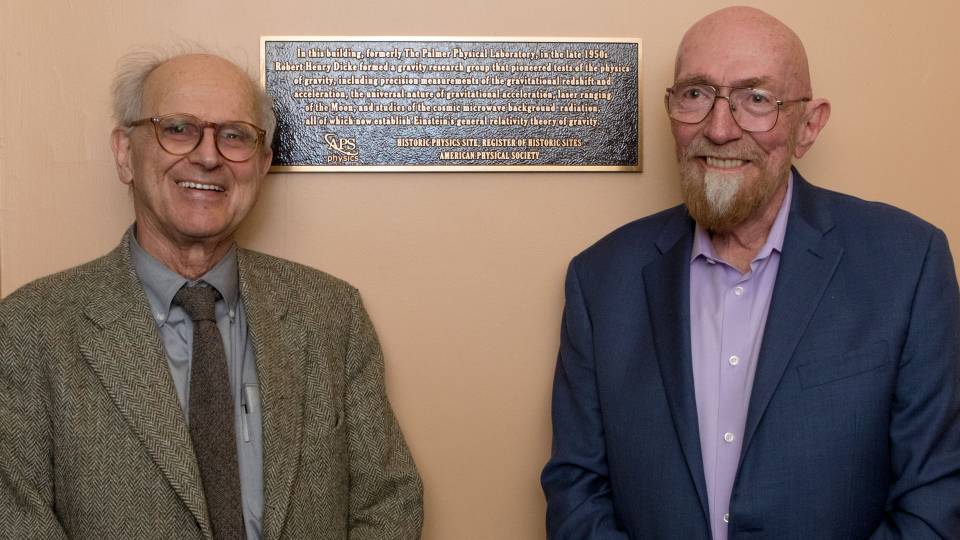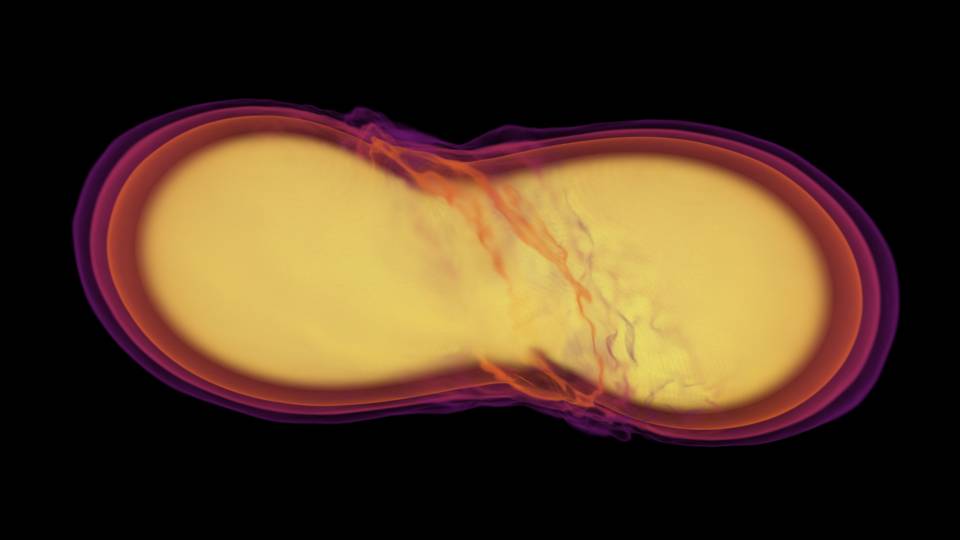More than 300 scientists from around the world gathered at a local conference center March 15-16 to honor Princeton physicist John Wheeler, who has been an important force in 20th-century physics and who is approaching his 91st birthday.
The conference, called "Science and Ultimate Reality," celebrated Wheeler's drive to address big, overarching questions in physics, which often begin to merge with philosophical questions about the origin of matter, information and the universe.
"In many ways John Wheeler is unique," said Freeman Dyson, a physicist at the Institute for Advanced Study and one of the presenters at the conference. "The fact is that he's both a physicist and a philosopher, whereas usually people choose one or the other."
Sponsored by the John Templeton Foundation and the Peter Gruber Foundation Cosmology Prize , the conference was held at the Merrill Lynch Conference Center.
Speakers at the gathering addressed several aspects of Wheeler's scientific contributions, which have played a part in many of the key advances in physics over the last three-quarters century. Working with Neils Bohr in Copenhagen, Denmark, Wheeler helped formulate a theory of nuclear fission, the splitting of atoms in radioactive decay. Wheeler went on to work on both the atomic and hydrogen bomb projects.
At Princeton, Wheeler delved deeply into and helped rejuvenate the field of general relativity, which had not continued to be a subject of intense interest among physicists since Einstein's original discovery. "Wheeler's interest in general relativity had a tremendous influence on the field," said Princeton astrophysicist Richard Gott, who was a panelist at the conference. Wheeler coined the term "black hole" to describe a collapsed star so dense that not even light can escape its gravity.
He also has investigated how the inscrutable behavior of very small particles -- quantum shifts that seem to depend on the participation of an observer -- can explain the origin of the universe.
"Wheeler has always been an idea person, who has thought of new ways of looking at things -- new ways of looking at geometry and new ways of looking at quantum mechanics," said Gott. "Wheeler is just remarkable."
Wheeler joined the Princeton faculty in 1938 and transferred to emeritus status in 1976.
Contact: Marilyn Marks (609) 258-3601



